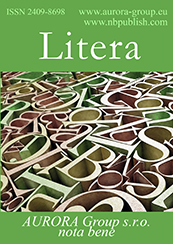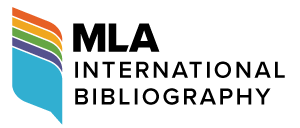Psycholinguistics
Reference:
Prihod'ko , V.K. (2025). Types of Emotives in Artistic Text (Based on M.Yu. Lermontov's Poem "Demon"). Litera, 5, 1–13. https://doi.org/10.25136/2409-8698.2025.5.74232
Abstract:
The article examines the category of emotivity through emotive words, metaphors, and emotive descriptions used in literary texts. It attempts to explain the essence and functioning of emotives of different types based on the material from M.Yu. Lermontov's poem "Demon" according to the typology proposed by the author. This typology was developed and tested by the author of the article previously on dialectal material. The typology has not been studied in relation to the poetry of M.Yu. Lermontov before. The object of the study is the category of emotivity, which is understood as the verbal representation of the emotional world of characters in the literary text. The subject of the study is the linguistic means of expressing emotions in the poem "Demon" by M.Yu. Lermontov. The relevance of the study is ensured by the extraordinary interest of scholars in the category of emotivity and the ways it is expressed in literary texts. The methods used in the work include analytical and descriptive methods, as well as semantic and contextual analysis of emotive contexts based on the main principles of linguistic analysis of literary texts: the principles of historicism, coordination of the general and the specific, the principle of semantic opposition, and the principle of associative dominance. The novelty of this research is determined by the fact that no similar analysis has been conducted based on the material of M.Yu. Lermontov's idiolect so far. The poem "Demon" by M.Yu. Lermontov has not been studied in terms of emotivity from this perspective either. In scientific literature, it is common to discuss psychological aspects and the psychological foundations of the mythological image of the Demon. In this study, the artistic style of language, which creates diverse psychological and speech portraits of characters, is chosen as the material for examining emotives in semantic and pragmatic aspects. The identified and described emotives express "living," "painful," and "dead" emotions of literary heroes, vividly reflecting their inner world and experiences, and are also interesting in terms of the communicative act, during which the writer as the creator of the artistic work interacts with an intelligent, thinking reader.
Keywords:
M.Yu. Lermontov, poem, emofalsified, emoviolative, emotanatative, emovitative, emotives, psychologism, emotive meaning, emotionality
 This work is licensed under a Creative Commons Attribution-NonCommercial 4.0 International License.
This work is licensed under a Creative Commons Attribution-NonCommercial 4.0 International License.











 © 1998 – 2025 Nota Bene. Publishing Technologies. NB-Media Ltd.
© 1998 – 2025 Nota Bene. Publishing Technologies. NB-Media Ltd.




